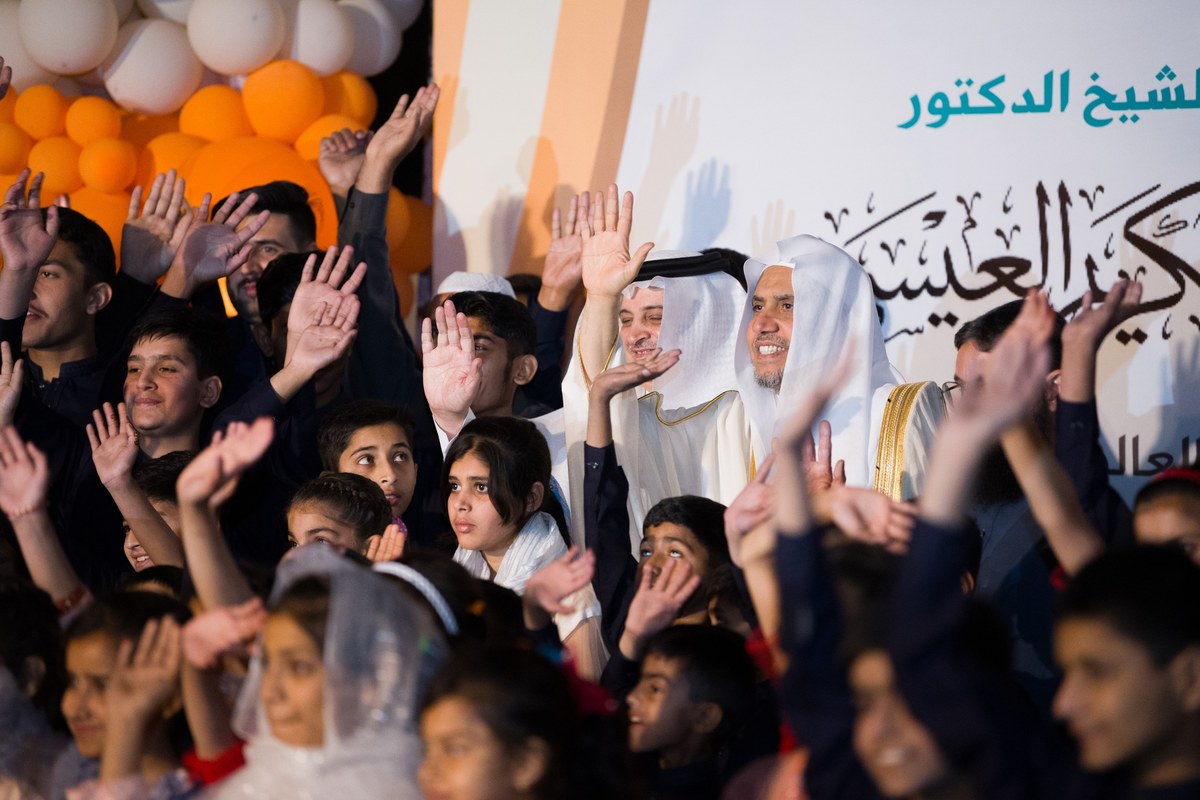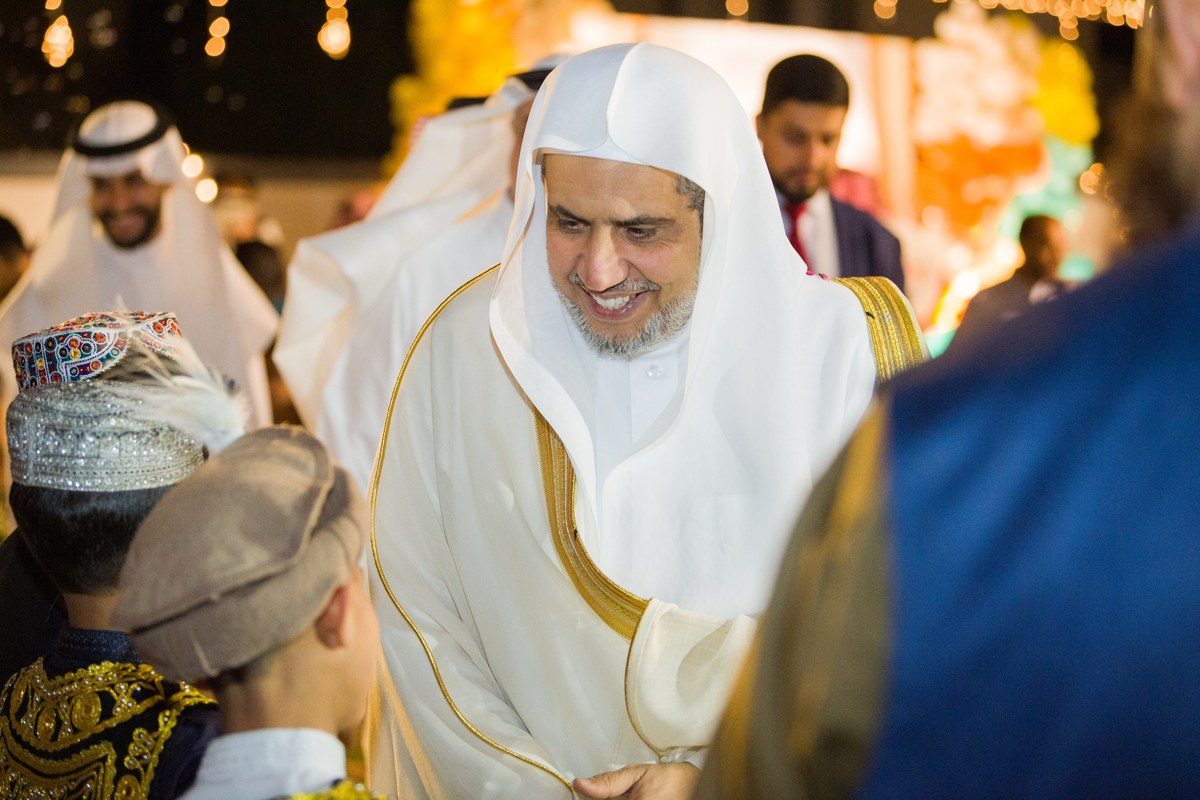ISLAMABAD: Dr. Mohammad bin Abdulkarim Al-Issa, the secretary-general of the Muslim World League (MWL), on Thursday visited an orphanage in the Pakistani capital of Islamabad, where he shared the joy of Eid Al-Fitr with orphaned children.
Dr. Al-Issa arrived in Islamabad late Sunday night on a nine-day trip aimed at fostering interfaith harmony and strengthening Saudi Arabia’s bilateral relations with Pakistan.
The MWL is a Makkah-based non-governmental organization that represents followers of Islam around the world.
“His Excellency Sheikh Dr. #MohammedAlissa, Secretary-General of the MWL, visited the Ali bin Abi Talib Orphanage, affiliated with the #MuslimWorldLeague in Pakistan,” the MWL said in a Facebook post.
“He celebrated Eid with the orphans and inaugurated new facilities, including a gymnasium and a training center.”

Dr. Mohammad bin Abdulkarim Al-Issa, the secretary-general of the Muslim World League (MWL), poses for a photo with children at the Ali bin Abi Talib Orphanage in Islamabad, Pakistan, on April 11, 2024. (Photo courtesy: Muslim World League)
The visit came a day after Dr. Al-Issa delivered the Eid Al-Fitr sermon at the Shah Faisal Mosque in Islamabad.
During the sermon, Al-Issa called on Muslims to keep Palestinians close to their hearts and in their prayers as they celebrated Eid.
“As we rejoice in this joyous celebration, we do not forget the tragedy of our brothers in Gaza, afflicted by the aggression and arrogance. May the Almighty give a favorable outcome to their trials, may the crimes that have been committed turn against those who committed them,” he said.
He also spoke about the responsibility of Muslims to use their actions to project Islam in its true light.

Dr. Mohammad bin Abdulkarim Al-Issa, the secretary-general of the Muslim World League (MWL), interacts with children at the Ali bin Abi Talib Orphanage in Islamabad, Pakistan, on April 11, 2024. (Photo courtesy: Muslim World League)
Muhammad Umer Butt, a Pakistani government spokesperson, earlier told Arab News that during his nine-day visit, Dr. Al-Issa would hold high-level meetings with Pakistan’s president, prime minister and minister of religious affairs.
“The MWL secretary-general will sign an MOU [memorandum of understanding] with the government of Pakistan for the establishment of a state-of-the-art Seerat-un-Nabi Museum in the federal capital,” he said, adding the MWL secretary-general would also perform the groundbreaking ceremony for the museum after signing the MOU on April 15.
The museum will be the first of its kind in Pakistan dedicated to exhibiting relics related to the Prophet Muhammad’s (PBUH) life.
















